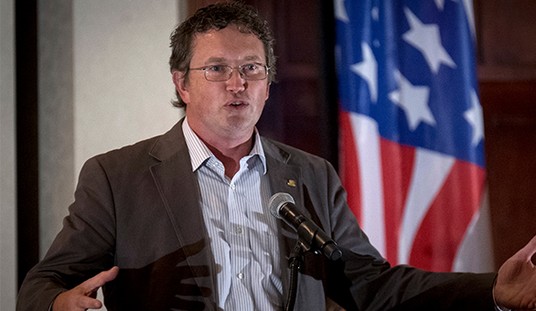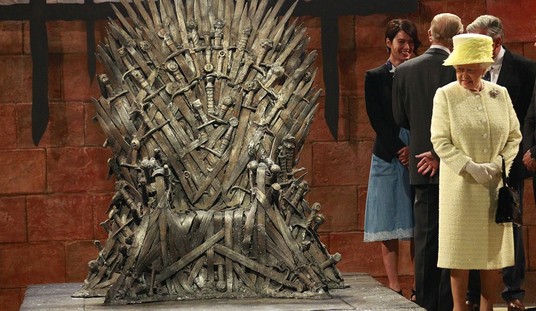“Rangers Lead The Way”
At a time when the use of an improper pronoun might cause millennials’ heads to explode and social media hangs onto each new development in the Jussie Smollett case, there’s a small group of young men – and even a few women – who distinguish themselves by taking on a challenge few would consider.
Instead of defending humanity against the latest perceived social injustice, these young men are preparing to defend America against terrorists and other geo-political threats, even if that means the sacrifice their own lives.
Considered one of the military’s toughest challenges, Army Ranger School is a 61-day field combat leadership course in which participants train for 20 hours a day, seven days a week. The purpose of the class is to develop calm, forceful leadership skills while pushing one’s mental, psychological, and physical limits to the max.
Ranger School is best known for sleep and calorie deprivation. It’s not unusual to see people falling asleep while marching. Three hours of sleep or less is the norm.
There are three phases of Ranger School: Darby (crawl), Mountains (walk), and Swamp (run). Each comes with its own set of daunting circumstances.
It begins with a three-day ranger assessment phase (RAP), which includes such delights as “calmly walking across a log suspended thirty-five feet above a pond, transitioning to a rope crawl, then plunging into the water.”
The mountain phase consists of small unit training exercises conducted mostly at night, regardless of the weather, at the highest elevations of the mountains of Dahlonega, GA.
The swamp phase develops the students’ ability to “lead small units on airborne, air assault, small boat, ship-to-shore, and dismounted combat patrol operations in a low intensity combat environment against a well-trained, sophisticated enemy.”
(The video at the bottom of the phase offers an overview of course activities.)
My youngest son followed in the footsteps of his older brother, as well as two of my RedState colleagues, Streiff and Mike Ford (who, by the way, was the distinguished honor grad of his Ranger class), and joined 190 other young men and four young women in celebrating their graduation from Ranger School on Friday.
The graduation ceremony began with an exhibition of the courses’ training exercises, including extracting soldiers out of enemy territory, a demonstration of ammunition and hand to hand combat. Watching the U.S. military perform feats which are common practice for them, filled us with a strong sense of awe as well as a tremendous feeling of patriotism. Below is a photo of a helicopter extracting troops out of enemy territory.

The “Manferno”
As part of a five-day field training exercise during the mountain phase of my son’s course, the soldiers participated in a nocturnal platoon operation. Their mission was to conduct an ambush on an enemy vehicle.
My son’s four-man team was part of the security squad whose task was to provide early warning to the rest of the platoon and to make sure that nobody entered or exited the perimeter of the objective. This required them to remain stationary, lying down on the ground for two hours. The temperature was five degrees, with the wind chill making it feel even colder.
Wearing only a traditional army combat uniform with a t-shirt underneath, and a goretex windbreaker, staying warm meant forming a “manferno.” This means the four huddled together for warmth, clutching to each other for dear life.
An hour afterward, they were given MRE’s, and could barely move their frozen fingers, which were glossy, an early sign of frostbite.
“Go” vs. “No Go”
Historically, the graduation rate has hovered around 50%. This includes students who ultimately graduate after “recycling,” meaning they must repeat phases they do not pass the first time. Roughly 2/3 of the students, including both of my sons, wind up as ”no-go’s” in at least one of the phases.
My oldest son became a no go due to a slight hesitation before jumping out of an airplane.
My youngest, assigned to a patrol one night, fell asleep on his knees with his hands in his pockets, next to his M240 machine gun. Feeling a slight nudge, he opened his eyes to see two clean boots. Looked up a bit more and noticed a foreign uniform. A little further, he looked into the face of a Danish RI (ranger instructor).
F***.
The RI adjusted his night vision goggles and said (in heavy accent), “Hands in “za” pocket, asleep, droning, not pulling security. Ranger, what is your roster number?”
Physical Effects of Sleep and Calorie Deprivation
Ranger School also takes a quite toll on the body. Wikileaks reports:
Following the completion of Ranger School, a student will usually find himself “in the worst shape of his life.” Military folk wisdom has it that Ranger School’s physical toll is like years of natural aging; high levels of fight or flight stress hormones (epinephrine, norepinephrine, cortisol), along with standard sleep deprivation and continual physical strain, inhibit full physical and mental recovery throughout the course.
Common maladies during the course include weight loss, dehydration, trench foot, heatstroke, frostbite, chilblains, fractures, tissue tears (ligaments, tendons, muscles), swollen hands, feet, knees, nerve damage, loss of limb sensitivity, cellulitis, contact dermatitis, cuts, and insect, spider, bee, and wildlife bites.
Feeling of Confidence Upon Completion of Course
At the end of each phase, students are assessed by the RI’s. If they have passed, they are a “go” and their report will be written in blue ink. If they fail, they become a “no go” and the ink is red.
One can only imagine the flood of relief and the sheer joy they feel upon seeing their assessment penned in blue. Or their crushing despair if it is red.
My son describes his Ranger School experience as the greatest challenge of his life. He tells me that the experience has increased his self-esteem and his level of maturity. And that he’s not afraid to do anything ever again in his whole life.
No doubt, life will kick him around as it does to everyone, but all in all, not a bad experience for a 23-year-old.
Next objective: Special Forces Training (Green Beret), otherwise known as the Q course, which vies with Ranger School as the army’s toughest challenge.
Which one is worse is unclear, however, a young man who’s experienced both, said, “They suck in different ways.”














Join the conversation as a VIP Member